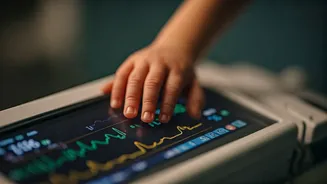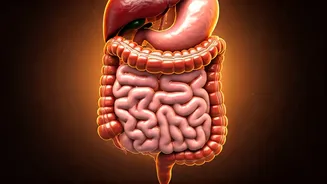Understanding Yourself Better
The first book to consider might be "Thinking, Fast and Slow" by Daniel Kahneman. This book explains how our minds work in two distinct modes: fast, intuitive
thinking, and slow, deliberative thinking. You will learn about cognitive biases, which are systematic patterns of deviation from norm or rationality in judgment. This knowledge can help you make more informed decisions by recognizing these biases, which can prevent them from influencing your choices. Another great choice is "Man's Search for Meaning" by Viktor Frankl, which delves into the power of finding purpose in life. Frankl's experiences in a concentration camp during World War II provide a poignant backdrop for exploring the importance of meaning and resilience in the face of adversity. This book offers profound insights into how we can find purpose in difficult circumstances and maintain a sense of hope and meaning.
The Power of Habits
Next on the list, consider "The Power of Habit" by Charles Duhigg, which unravels the science of habit formation. Duhigg explores how habits work, from the simple cue-routine-reward loop to more complex behaviors. Through various case studies, you'll learn how to identify and change your own habits and how they shape our actions, both consciously and unconsciously. A second book to consider on habits is "Atomic Habits" by James Clear. Clear offers a practical guide to building good habits and breaking bad ones, with a focus on small, incremental changes. The book provides a framework for creating lasting behavioral changes through simple, actionable steps, and it explains how small improvements can lead to remarkable results over time. This offers a clear roadmap for anyone looking to improve their habits and achieve their goals.
Decoding Emotions and Behavior
Moving on, "Emotional Intelligence 2.0" by Travis Bradberry and Jean Greaves provides a practical guide to understanding and managing emotions. This book offers insights into how emotional intelligence can improve your relationships, career, and overall well-being. It provides self-assessment tools and actionable strategies for enhancing emotional awareness, self-management, social awareness, and relationship management. Also, consider "Daring Greatly" by Brené Brown, which explores the power of vulnerability in connecting with others and living a wholehearted life. Brown's research-backed insights show how embracing vulnerability can foster stronger relationships, increase courage, and lead to more authentic living. This highlights the importance of courage and self-acceptance.
Mindfulness and Well-being
Next, you can consider "Wherever You Go, There You Are" by Jon Kabat-Zinn, which introduces the practice of mindfulness. This book provides a clear and accessible guide to mindfulness meditation and its benefits, including stress reduction and increased self-awareness. It guides you on how to incorporate mindfulness into daily life. "The Happiness Hypothesis" by Jonathan Haidt explores the intersection of ancient wisdom and modern psychology. Haidt draws on philosophical ideas and scientific research to explore how we can find happiness and fulfillment. This offers insights into the pursuit of well-being, exploring themes such as the mind-body connection, the importance of relationships, and the role of meaning and purpose in life. It provides a balanced and thought-provoking view of human happiness.
Relationships and Communication
Next, read "Nonviolent Communication: A Language of Life" by Marshall B. Rosenberg, which offers a powerful framework for improving communication and building stronger relationships. This book helps readers to communicate more effectively and compassionately, resolving conflicts, and building deeper connections. This book provides practical tools and techniques for expressing your needs and feelings while hearing those of others. Another book to read is "Attached" by Amir Levine and Rachel S.F. Heller, which examines attachment theory and its influence on adult relationships. This explores how your attachment style affects your relationships, offering insights into understanding your behavior and the behavior of others. The book provides a valuable framework for navigating relationships, understanding why you are drawn to certain people, and improving your relationship dynamics.
Cognitive Behavioral Therapy
You can now read “Feeling Good: The New Mood Therapy” by David Burns, which explains the principles of cognitive behavioral therapy (CBT). Burns offers practical techniques for managing negative emotions and improving mental well-being. This helps readers identify and challenge negative thought patterns, such as self-criticism and perfectionism, and provides tools for developing healthier thinking habits. You can also consider “Mind Over Mood: Change How You Feel by Changing the Way You Think” by Dennis Greenberger and Christine A. Padesky. This offers a practical guide to CBT, providing a workbook-style approach to changing negative thoughts and feelings. This book provides structured exercises and techniques for managing anxiety, depression, and other common mental health challenges. It's a great choice for those seeking to apply CBT principles to their everyday lives.
Self-Esteem and Confidence
Another option to consider is “The Six Pillars of Self-Esteem” by Nathaniel Branden. Branden explores the foundations of healthy self-esteem and provides strategies for building confidence and self-respect. This book offers insights into the importance of self-acceptance, responsibility, and living authentically. Also, you can consider “No Bad Feelings” by Brandon J. Smith and Dr. Ali Binazir. This book provides practical strategies to help individuals effectively manage, understand, and regulate their emotional state. It covers practical concepts and frameworks that contribute to overall mental well-being. The book aims to make emotional wellness accessible and easy to implement in everyday life.
Making Informed Choices
Next, the book “Influence: The Psychology of Persuasion” by Robert Cialdini explains the principles of influence and persuasion. Cialdini explores the psychological factors that impact our decision-making. This book provides insights into how we can be more aware of the techniques used to influence us, as well as how we can effectively communicate with others. Also, consider the book “Predictably Irrational” by Dan Ariely, which explores the ways in which humans behave irrationally. Ariely uses experiments and real-world examples to explain how our decisions are often driven by emotional and cognitive biases. The book reveals interesting insights into how our minds work and the reasons why we make certain choices.
Psychology and Art
Another book to consider is “Creativity, Inc.” by Ed Catmull and Amy Wallace. This book explores the creative processes behind Pixar Animation Studios and its development, including the underlying psychology and principles. It provides insights into how to cultivate innovation and create a collaborative work environment. You will explore how to nurture a culture of creativity and collaboration within your own life. Also, consider “The War of Art” by Steven Pressfield, which addresses the creative process and the obstacles that can hinder artistic endeavors. It provides insights and practical advice on overcoming resistance, and embracing the creative process.
Final Thoughts
These ten psychology books represent a diverse selection of topics and approaches. They all offer valuable insights into the human mind, behavior, and emotions. By exploring these books, you can gain a deeper understanding of yourself and the world around you. You will acquire practical tools for self-improvement and developing a more positive outlook on life, all while learning from the wisdom of experts. Reading these books will give you a fresh perspective on your daily habits and understand the forces shaping your actions.


















